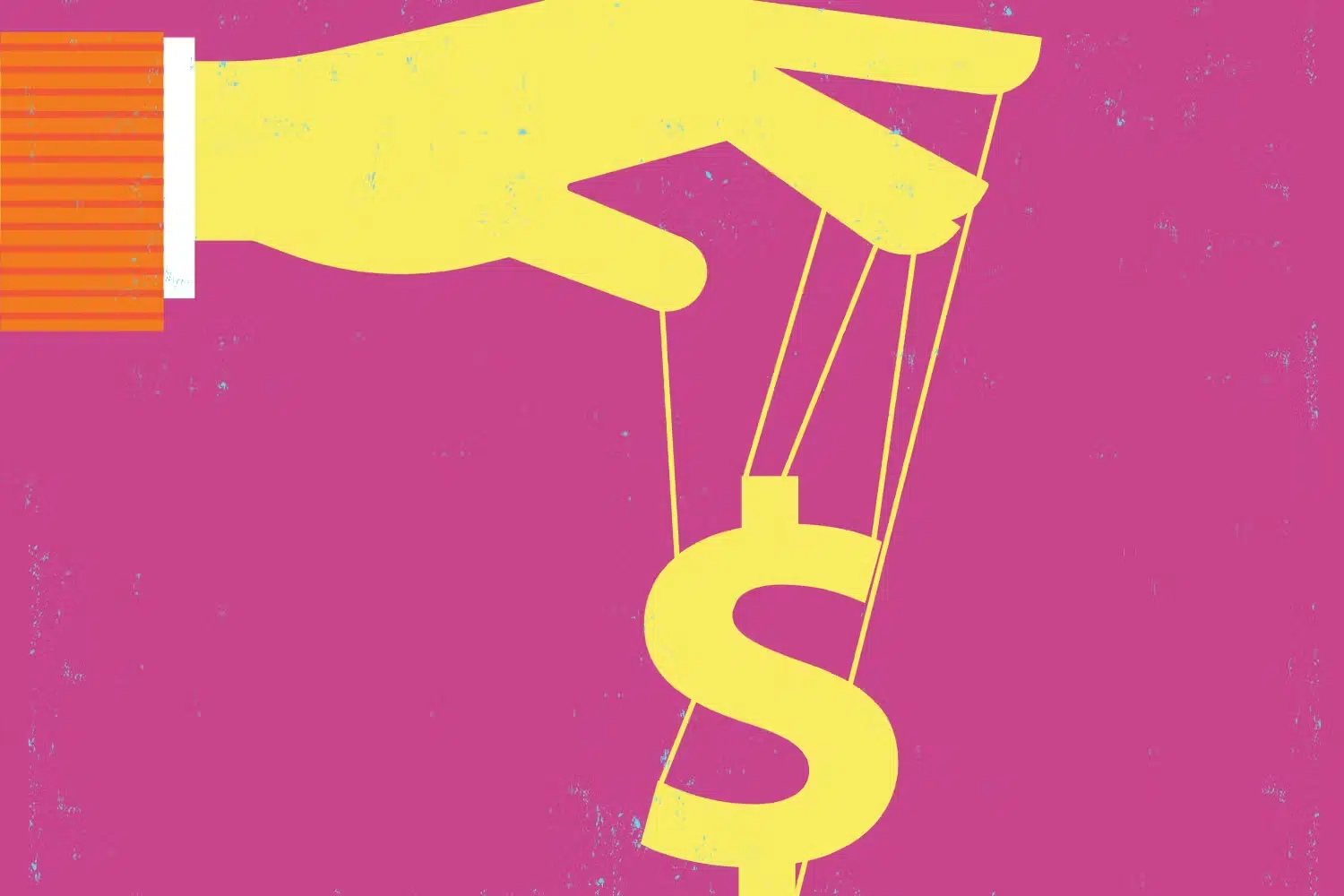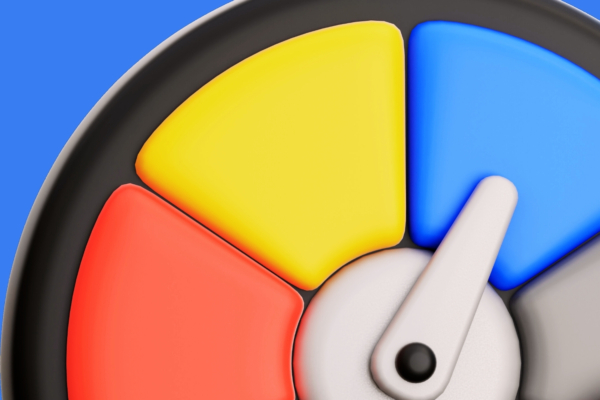
Take Control of Your Finances: Part Two

If you’re currently struggling with debt or poor credit, know that you are not alone. According to a recent study, the average American has a little over $90,000 in debt from credit cards, student and personal loans, mortgages, and other loan products. On top of that, while 69% of consumers have a “good” or “exceptional” credit score— a third of American consumers have a score of 670 or below.
If you’re concerned about debt or a low credit score, take comfort—you’re not alone. In part two of our “Take Control of Your Finances” series, we’ll look at managing credit cards and loans, as well as how to improve your credit history.
Let’s dive in!
Tips for Managing Your Credit Cards
People often ask— “Are credit cards good or bad?”
The truth is that a credit card, in and of itself, is not inherently good nor bad. It’s all about how you use the credit card.
Are credit cards good or bad?”
With a lot of care and caution, a credit card can be an excellent tool that allows you to build credit, budget your money, and take advantage of unique rewards. However, credit can quickly spiral into a pit of debt before you even realize it.
If you have credit cards, do the following to keep your balances manageable:
- Treat a credit card like real cash. Because it is real—one way or another, you’re going to pay that bill with real money.
- Don’t spend more than you have. When using any kind of revolving credit, avoid spending more than you can pay off at the end of each billing cycle. This will ensure that your balance doesn’t start accumulating interest.
- Pay more than the minimum balance. It can be tempting to pay only the required minimum every month. But by doing that, you allow the rest of your balance to rack up high interest charges.
- Be aware of hidden interest and fees. Credit card companies often tack on extra fees like late payment fees, over-the-limit charges, annual fees, and more. Make sure you’re aware of the unavoidable ones and do what you can to avoid the others.
- Watch your rates. When transferring balances to take advantage of low interest rates, be sure to pay off outstanding balances before the introductory rate expires.
- Balance your rewards. Looking for the best way to get cash back, travel rewards, or other perks? Be sure to read all the fine print and understand features like annual fees and interest rates. The Points Guy does an excellent job breaking down common credit cards and their features, benefits, and drawbacks.
- Pay on time. Be sure to make payments on time; otherwise, it could negatively affect your credit report and cost you in fees.
The most important thing to remember is that a credit card is not the same thing as having money in the bank. It’s a type of loan, and loans almost always cost money to use.
What’s so bad about only paying the minimum balance?
The minimum balance is just a fraction of what you owe. If the interest rate is 0%, you’ll be able to steadily pay it down. Right? But 0% cards are few and far between, and that rate only last so long—eventually, you’ll owe the whole balance. When your interest rate goes up, that balance will increase on a daily basis.
Let’s take CNBC’s example: “In order to calculate the true cost of only making minimum payments on a credit card, we used a balance of $6,194 and an interest rate of roughly 16.61%, which is the average credit card APR according to the Fed’s most recent data from February 2020. We used the minimum payment definition from above, using the greater of $35 or 1% of your balance plus interest charges and assumed no late fees or penalties.
By crunching the numbers, we calculated that it would take you approximately 17 years and three months to pay off your debt if you only paid the minimum. During this time, you’d pay a total of $7,286 in interest, bringing the total amount of all your payments to $13,480.”
17 years, and you’d end up paying $13,480—when you originally owed only $6,194. That is an incredible argument for why you should always pay more than the minimum balance. It may not always be possible, and there may be months where you can’t afford to pay more, but every month that you can afford it, you should be paying off that debt as quickly as you can.
Alternatives to Credit Cards
Sometimes it’s best to do away with the temptation altogether and use an alternative form of payment while you get a secure financial footing and pay down debt. Thankfully, this doesn’t have to mean carrying around a wad of cash wherever you go. Debit cards offer many of the same conveniences that a credit card does without the disadvantages. If you don’t already have a debit card, it can be a helpful tool that helps you spend money wisely.
For more information on how you can use a debit card to budget your money, check out this nifty guide we created.
Tips for Managing Other Loans
Credit cards aren’t the only bills that can feel overwhelming. Mortgages, auto loans, student loans, and personal loans can also stack up and contribute to your overall debt level.
You’ll want to keep the same principles in mind for loans:
- Pay your bills on time
- Don’t take out more credit than you can realistically afford to pay back
- Know what fees you may face for late payments
Paying on time is especially important with loans that are backed by collateral, such as your house or car. Failure to pay these can lead to foreclosure or repossession, meaning the bank can legally seize your property and sell it to recoup their money.
When you take out a loan, look at your income first. If your cash flow was cut by 30%, could you still afford the monthly payments? What if your cash flow was cut in half? This isn’t an official guideline or consideration, but these questions can help you decide whether or not to take out that loan.
Debt Consolidation
If you’re paying high interest rates on these loans and your monthly bills are piling up, debt consolidation is a potential solution worth looking into. With debt consolidation, you’ll take out one lower-interest loan to pay off many or all of your higher-interest bills. Though this certainly isn’t for everyone, consolidation can make the path out of debt more straightforward.
How to Improve Your Credit Score and History
Created as a way for lenders to assess a borrower’s risk, credit history has become an increasingly more important part of financial health. When it comes time to make a major purchase such as a house or car, lenders will rely heavily on your credit history and score in their approval decision.
Because a credit report affects so many different aspects of one’s financial situation, it’s important to establish and maintain a good credit history in your name.
Start by reviewing your credit report regularly and be sure to correct any errors on it. The credit bureaus certainly aren’t perfect, and wrong information can lead to a lower score. You’re entitled to a free copy of your credit report from each of the three major credit reporting agencies once every 12 months. If you find any mistakes, be sure to dispute them.
Wondering what else you can do to improve your credit score? Here are some tips.
- Pay your bills on time. This is the third time we’ve mentioned it, but it’s really that important! The biggest factor in your credit score calculation is payment history, so you want to get that on track ASAP.
- Pay down debt and maintain low balances. High levels of debt and maxed-out credit limits negatively impact your score. Pay off debt when possible and be cautious with how much you spend with revolving lines of credit.
- Limit the number of credit inquiries you make. Anytime you apply for credit, whether it be a loan, line of credit, or credit card, that company will make a hard inquiry on your credit report. Each time, your score will take a small hit.
- Keep credit cards open. Even if you want to cut back on your credit card usage, it’s important to not close the accounts altogether. Doing so will cut your total credit limit, which increases your credit utilization rate. That’s bad news for your credit score.
- Protect your oldest credit card. Your credit age is an average of all your accounts. Keep the oldest ones open, if possible!
Your credit score won’t improve overnight. It will take some time and diligence, but it can set you up for financial success down the line. Not only are you more likely to be approved for things like a home mortgage, but lenders often have better deals and interest rates for those with good credit.
Building Your Credit History
Maybe you can’t get approved for a standard credit card or you have no credit history at all—what then? It might be time for a secured credit card!
Here’s how this kind of credit card works: you give a bank a refundable security deposit, and they use it as collateral for a credit card. This way, if you default or stop paying your bill, they can use the deposit to cover your balance. This lowers the risk for the lender and gives you the opportunity to prove yourself to be credit-worthy. You can use a secured credit card exactly like any other credit card and no one will know it’s secured.
Authorized Users and Cosigning
There is another way to build credit history: connecting your credit history with someone else’s.
There are two ways to do this:
- Becoming an authorized user on someone else’s credit card
- Getting someone to cosign on a credit card or loan for you
Neither of these options should be entered into lightly: if you default or can’t pay the credit card bill, the cosigner or primary user is held responsible for the charges.
These options are most typically used by parents who want to help their teenagers build credit. If you have a history of bad credit, it may be more difficult for you to find someone willing to risk their own credit history for you.
Regain Control of Your Money
Even the smallest steps towards good money habits can make big differences in the long run. Know that it can take months— or even years— to really start reaping the benefits of your healthy changes, but it’s important to stick to your plans and goals. Every day that you use your credit card responsibly, pay your bills on time, and save to eliminate debt is a day spent working towards financial security and stability. A better credit score means more opportunities and lower interest rates!
If you haven’t read Part One of our “Take Control of Your Finances” series, be sure to go back and check it out.
Looking for a new credit union?
Become a member today!



